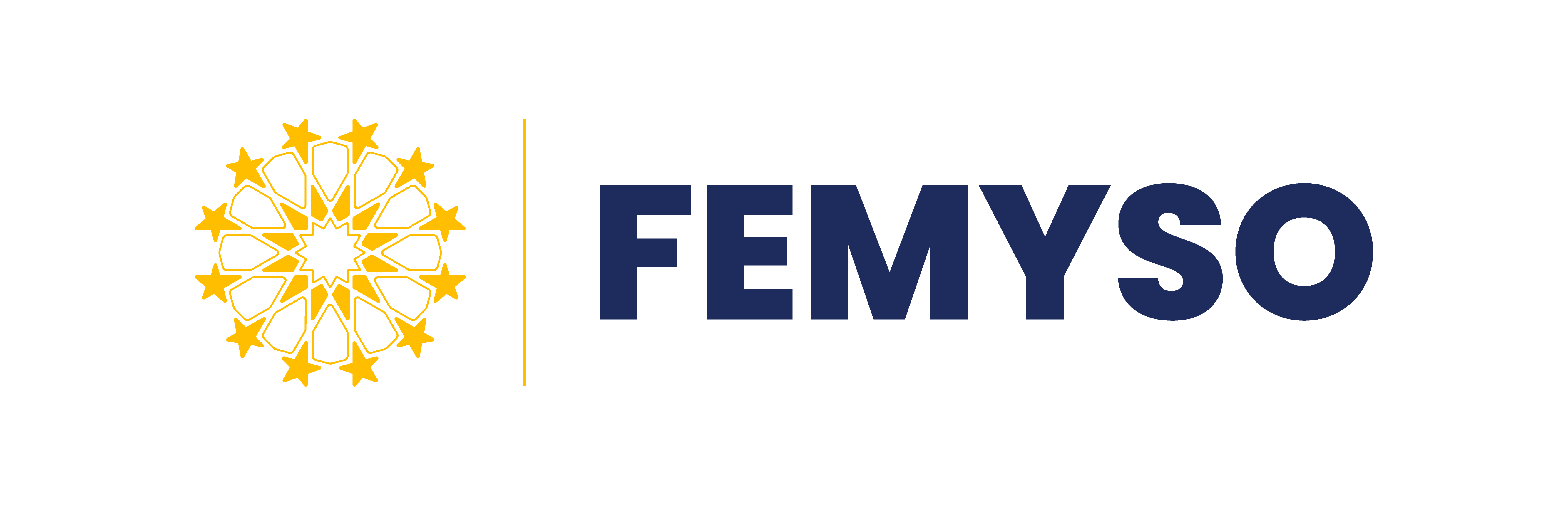24th of February marked the beginning of our European Turkish Network for Promoting Women Participation in Politics. The project, a partnership between FEMYSO, KADEM (Women and Democracy Association Turkey) & COJEP (Council for Justice, Equality and Peace), started with a 4-day study visit and networking event in Brussels where 10 Turkish women’s NGOs came together with 10 EU women’s NGOs as part of a series of joint activities under the theme ‘Women in Politics and Lobbying’, to boost women’s participation in politics.
Only 20% of parliamentarians worldwide are women, according to the UN. Despite advances in women’s rights and participation in public life, equal gender representation in decision-making is far from being reality. This means all laws and decisions made by our parliaments are non gender-balanced and do not adequately reflect the needs of women and of society in general. It is clear that without serious positive action being taken to promote the equal participation of women in politics, equal representation will not be achieved for decades and perhaps centuries.
The study visit in Brussels aimed to share know-how and experience between European civil society organisations and Turkish civil society organisations on women’s political participation, policy making and advocacy. The study visit also involved visits to EU institutions, women’s rights organisations and regional women’s councils to learn about EU policy and processes and to discuss the important issues on the EU political agenda concerning women’s rights, participation and representation of women in political life.
The first day started with an overview of the joint project between FEMYSO, COJEP and KADEM taking place throughout 2015 with three phases, including this study visit and networking event, followed by a symposium in Istanbul, creation of a networking website, political training curriculum and booklet of best practices, and a final lobbying event taking place in Strasbourg.
During the morning we were also introduced to a historical view of ‘Women’s Participation in Democracy in Belgium’ by Kim Lecoyer, Chairperson for the EU Steering Committee of KARAMAH, the organisation for Muslim women lawyers for dignity. A quick glance at statistics concerning gender representation in national parliaments and political decision making roles shows that equality is still far off. Kim Lecoyer, noted that “Even in so-called developed regions, women participation in politics only reaches approximately 30%. The vast majority of countries in the world have less than 20% participation of women in Parliaments.”
Why is this important? Kim noted that, “The modern history of women in politics started with the struggle for the right to vote. The normal situation of a woman before the 20th century was to go from being under the legal control of a father and then a husband, and married women had no legal existence.” Kim also drew on examples from other rights struggles, and noted that black men actually got their rights to vote before women did – showing how women were at the bottom of the pyramid.
What is interesting is that we observe that women’s participation in politics increases after periods of conflict, and more specifically genocides. An example of this is Rwanda, the first country in the world in terms of women’s parliamentary representation – 64% of seats are held by women.
The United Nations has developed four Key Practices for ‘Women’s Effective Political Participation’:
– Make both local and national elections free and fair for women (including temporary special measures such as quotas)
– Support women’s civil society organisations to advance women’s interests
– Build accountability for women’s rights in public institutions
– Support women political leaders to expand their influence
Source: http://www.un.org/en/globalissues/democracy/women.shtml
The networking visit was a chance for the 20 organisations present to showcase their work and highlight the needs of the women they represented. Below are profiles of a few of the organisations:
KAYCAD, the Association for Solidarity for Women Executives & Employees based in Turkey, established in 2010 by seven women in Ankara. Aiming to develop women in both economic and social spheres, KAYCAD provides trainings in universities on topics such as leadership, communication and technology.
HAZAR is an NGO working on encouraging women to participate in social life and decision making through education. They have recently launched a great initiative known ‘Wo/Men for Women Project’ which aims to raise awareness of gender based violence, while bringing together decision makers to address this issue. They also provide support to victims of gender-based violence.
Other organisations included FEMMA which is an NGO based in Brussels working with migrant women whom have fewer opportunities and in particular single women.
The third part of the day was a ‘Speed networking workshop’ encouraging women to share their personal, professional and NGO experiences with each other. This was to aid in bridging the gap while finding commonalities to enhance the development of cooperation for future initiatives and projects between European and Turkish NGOs.
Finally, the day came to an end with a very informative field visit to ACTION CNE FEMMES, a project of the CSC Union of Belgium. The project aims to tackle the significant gender wage gap and employment issues relating to maternity and paternity leave throughout Europe. According to research there is a 24% pay gap in the private sector between men and women with the same job and same qualifications. Women are also more likely to be in part-time work, to work for fewer years and in less secure jobs, which makes them vulnerable when they retire on a much lower pension, particularly in the case of divorce. Action CNE Femmes is putting in place action plans and trainings to achieve equal women’s representation in private companies and trade unions, to ensure women’s equal role in decision-making in the work place.






